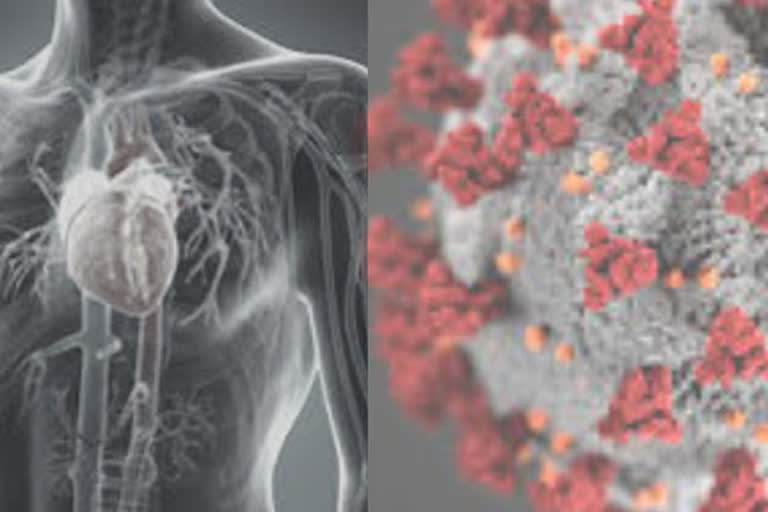Hyderabad: Even as scientists, researchers and healthcare professionals around the world continue to study the COVID-19 pandemic and its fallout, a new scientific paper prepared by emergency doctors from University of Virginia (UVA) claims that coronavirus can cause serious cardiovascular complications including heart failure, heart attacks and blood clots leading to strokes.
The new paper from UVA Health’s William Brady, MD, and colleagues has been prepared to serve as a “guide” for emergency-medicine doctors treating patients with COVID-19.
The authors argue that much attention has been paid to the pulmonary (breathing) complications of COVID-19, but less has been said about the cardiovascular complications that can lead to death or lasting impairment.
“In writing this article, we hope to increase emergency physicians’ knowledge and awareness of this new pathogen and its impact on the cardiovascular system,” said Brady, of UVA’s Department of Emergency Medicine.
“As we encounter more and more patients with COVID-19-related illness, we are increasing our understanding of its impact on the body in general and the cardiovascular system in particular. The rate of learning in this area is amazingly rapid. Information continues to change weekly, if not daily,” added Brady.
COVID-19 and Heart Failure
Citing a recent study, the authors note that almost 24% of COVID-19 patients were suffering from acute heart failure when they were first diagnosed with the virus.
The authors, however, state that it remains unclear if the heart failure was the result of COVID-19 specifically or if the virus was worsening undiagnosed heart failure.
Strokes and Other Concerns
In the paper, the authors also note that COVID-19, and other diseases that cause severe inflammation throughout the body, increase the risk of fatty plaque building up in the blood vessels to rupture, leading to heart attacks and stroke.
The author's further state in their review of the available COVID-19 medical literature, that Influenza and certain other viruses have been associated with increased risk of plaque ruptures within the first week after the disease was diagnosed.
Finally, while describing potential drug interactions in COVID-19 patients, the authors argue that the highly publicised anti-malarial drug hydroxychloroquine can interact with medications designed to regulate heart rhythm, in addition to causing heart damage and worsening cardiomyopathy.
Also read: India backs global resolution for independent 'inquiry' into Covid-19
About Remdesivir, an antiviral that is the only COVID-19 treatment authorised by the FDA, the study suggests that it can cause low blood pressure and abnormal heart rhythm.
It’s important for doctors to bear these interactions in mind when treating patients with COVID-19, the authors note.
“As we gain more experience with this new pathogen, we realize that its adverse impact extends beyond the respiratory system,” Brady said. “We will continue to learn more about COVID-19 and the most optimal means of managing its many presentations.”



